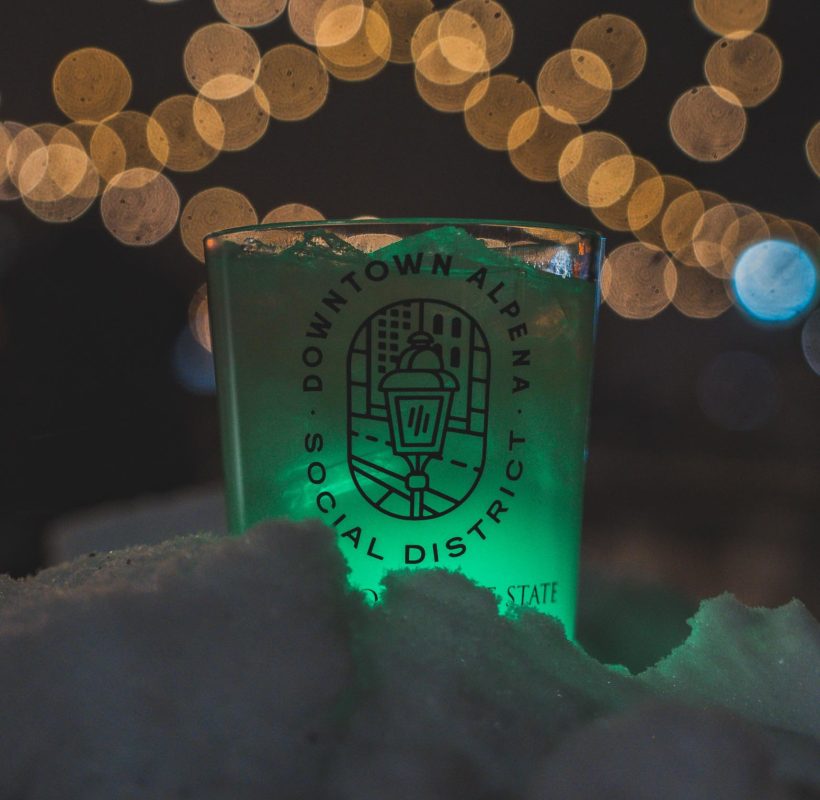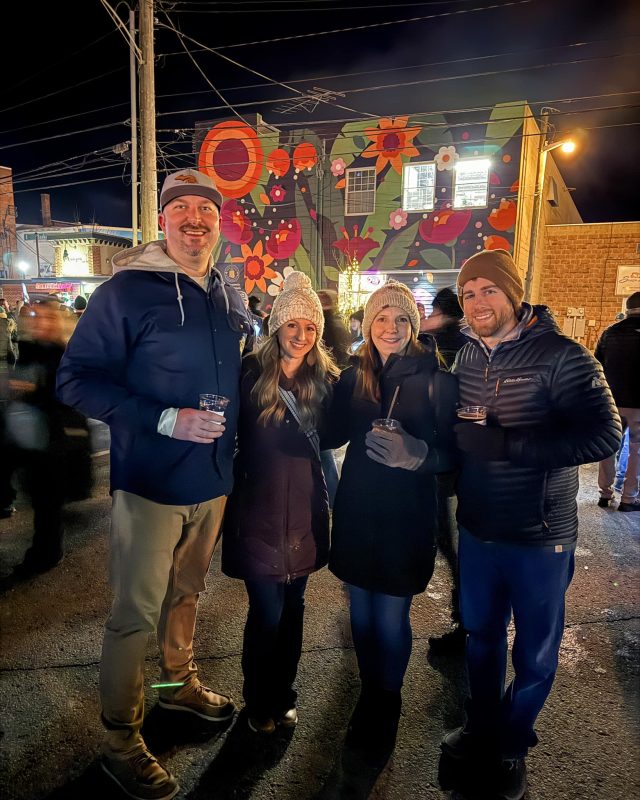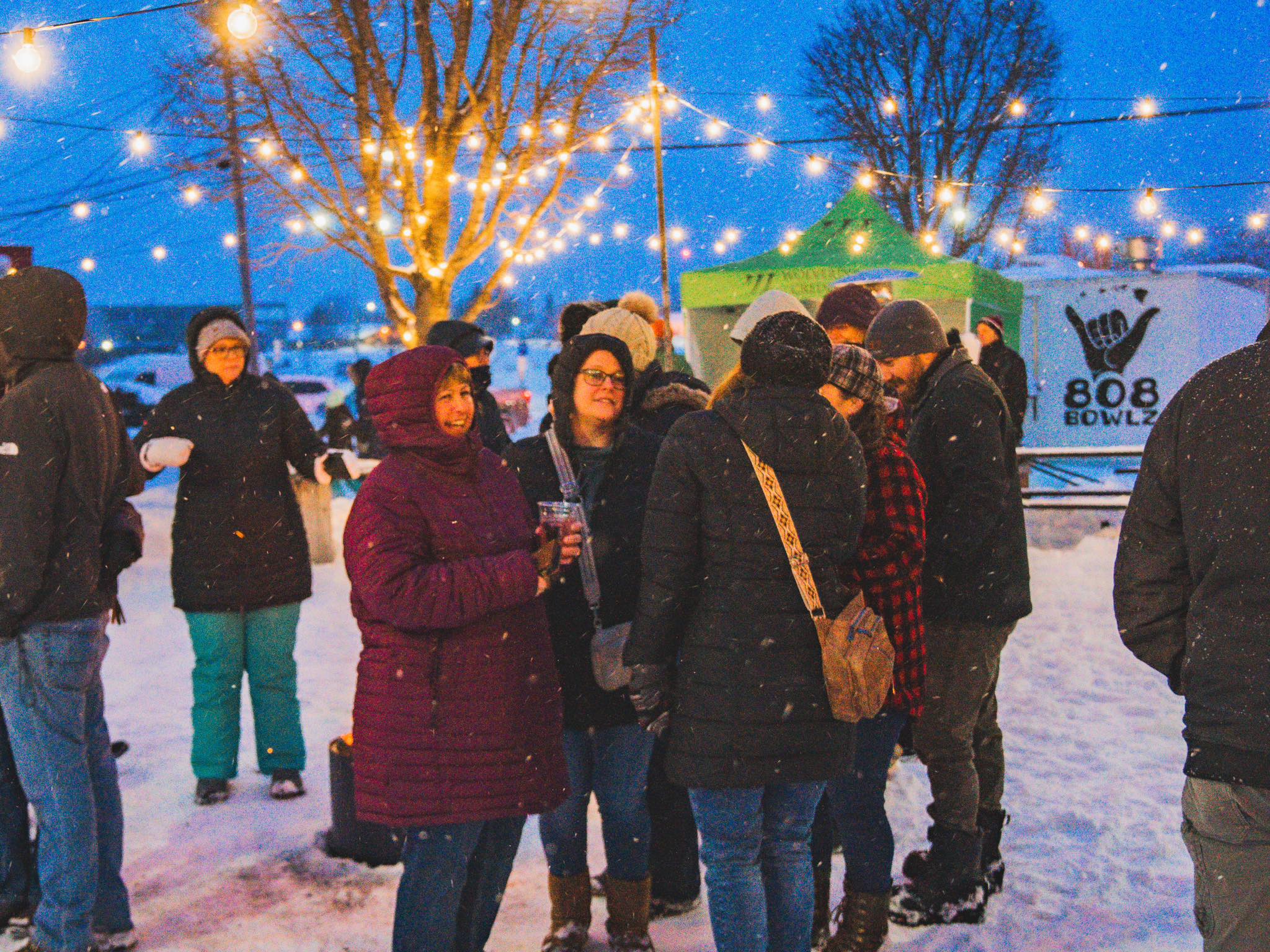
By Rachel Schrauben
Photos By Alison Jakubcin for the Alpena DDA
In 2020, social districts were introduced to support struggling restaurants and bars amid capacity restrictions due to the pandemic.
Bringing a Social District to Alpena
Alpena Downtown Development Authority (DDA) Executive Director, Anne Gentry, saw the opportunity to create a social district in her community and quickly got to work on the necessary paperwork to bring it to life.
 “We knew this could be a game-changer for downtown businesses, so we worked closely with the city to ensure a smooth and efficient process,” Gentry said.
“We knew this could be a game-changer for downtown businesses, so we worked closely with the city to ensure a smooth and efficient process,” Gentry said.
The process took about three to four months, from initial discussions to final approval. Gentry recognized early on that this initiative would not only benefit the local bars and restaurants, but Alpena’s retailers too.
“By allowing people to enjoy a drink while they browse shops, we’ve created a welcoming, relaxed atmosphere that encourages visitors to stay downtown longer.”
How Retailers Can Get Involved
Wayne Calkins, owner of Bolenz Jewelry in Alpena, agrees that the social district has made a positive impact on Alpena’s retail scene, drawing in both tourists and residents.
 “As a jewelry store, we’re not typically the place to make an impulse purchase, but as a business that relies on brides and brides-to-be, we see groups of women wander in and look at, try on, and wish-list rings. They may not be making a purchase in that moment, but they’ll remember us when the time comes,” Calkins said.
“As a jewelry store, we’re not typically the place to make an impulse purchase, but as a business that relies on brides and brides-to-be, we see groups of women wander in and look at, try on, and wish-list rings. They may not be making a purchase in that moment, but they’ll remember us when the time comes,” Calkins said.
Calkins encourages other restaurants and locations able to participate in the social district to get involved. “As a collective group of businesses, your local social district gives you an immediate edge. In this super competitive market, any advantage to encourage people to explore the downtown is vital to the growth of your community.”
“Having a staff that is willing to sell the entire downtown and share their experiences with other local businesses can give you an upper hand in getting customers to stay downtown longer, thus increasing the amount of time shopping and making purchases,” Calkins said.
Starting the Process
A governmental organization, such as a city or Downtown Development Authority, must apply to the Michigan Liquor Control Commission (MLCC) to establish a social district. Once approved, eligible downtown businesses can then apply for individual permits to sell beverages for consumption within the district.
Alpena’s team focused on setting up the necessary signage, additional trash receptacles, and portable restrooms to maintain a clean and enjoyable environment.
“We wanted to make sure that the district was well-maintained and easy to navigate, so clear signage and proper waste management were top priorities,” Gentry said.
Jeremy Sahr, owner of Thunder Bay Winery, found the process straightforward and well worth the effort.
“The DDA kept us involved from the start and asked us local businesses if we would be interested,” Sahr said. “They also helped us get started with purchasing a round of cups for us. It was very easy to get started.”
The Future of Social Districts
Social districts have proven to be an effective way to boost business for both hospitality and retail establishments. By creating a welcoming and vibrant environment, they encourage visitors to stay longer, explore more, and ultimately spend more within the community. Michigan retailers looking to take advantage of this trend should consider advocating for a social district in their own downtowns.

